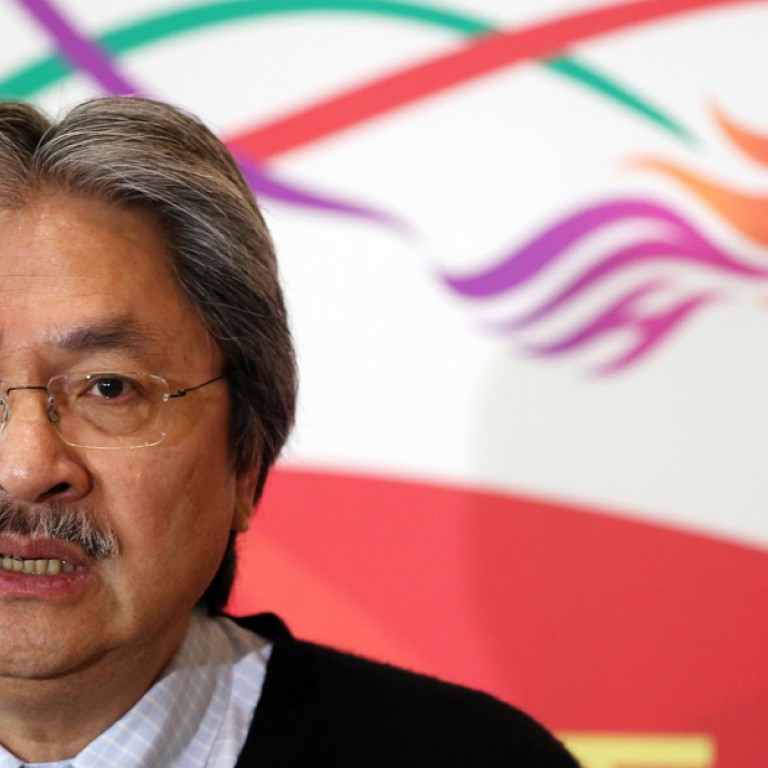
Warning sounded on taper outflows
HKMA reflects fears with caution to banks and investors over prospect of asset price volatility as funds exit on heels of Fed stimulus reduction
Hong Kong authorities have warned banks and investors of liquidity outflows and asset price volatility after the United States Federal Reserve announced tapering its bond-buying programme early next year while maintaining low interest rates as the American economy continues to improve.
"The normalisation of the US monetary conditions will inevitably heighten market volatility," warned the Hong Kong Monetary Authority in response to the Fed's policy. "The Fed's quantitative easing policy over the past few years has led to large capital inflows to emerging markets. As the US economy gradually recovers, fund flows may reverse, exerting downward pressure on asset prices."
The regulator is worried that as tapering begins, the huge stash of funds parked in Hong Kong since 2008 will begin to drain and possibly cause sudden drops in asset prices and lead to liquidity problems in the banking sector.
Since 2008, there has been a net inflow of HK$766 billion into the city's financial system after the US launched the quantitative easing policy in the wake of the financial crisis, according to data collated by JPMorgan.
Financial Secretary John Tsang Chun-wah said yesterday that there had been no noticeable outflow since tapering was announced but reiterated his advice to Hong Kong residents to exercise prudence when taking out loans as interest rates would rise.
The long-expected decision to begin tapering will see the Fed reduce its US$85 billion monthly asset purchase by US$10 billion, divided evenly between mortgage bonds and US Treasuries. The policy will be expanded on a month-by-month basis.
In announcing the decision, the Federal Open Market Committee said US economic activity was growing at a moderate pace, with rises in household spending and fixed-asset investment by businesses. The Fed adjusted its forward guidance by pledging to keep interest rates low "well past" any drop in unemployment below 6.5 per cent. US unemployment fell to a five-year low of 7 per cent last month and the Fed predicts it will drop to 6.3 per cent by the end of next year.
While most markets rose after the Fed's announcement, the Hong Kong and mainland exchanges dropped, mostly due to concerns over tightening liquidity among mainland banks.
With tapering, the Fed was sending a message that the US economy was in recovery, which should benefit Hong Kong's export sectors, JPMorgan economist Lu Jiang said. She predicted the city would notch up economic growth of 3.2 per cent next year, compared with 2.8 per cent this year. The economy should be well supported by the US rebound and moderate growth on the mainland, she said.
Benjamin Hung Pi-cheng, the chairman of the Hong Kong Association of Banks and chief executive of Standard Chartered Bank (Hong Kong), said he did not expect a massive outflow of funds from the region as economic growth was still robust. He also said he expected interest rates in Hong Kong would remain stable in the short term.
Anita Fung Yuen-mei, HSBC's Hong Kong chief executive, said: "Given that the FOMC is committed to maintaining a highly accommodative stance of monetary policy for a considerable time, there is no exigency to revise our savings and lending rates at this stage."
How tapering plays out will be watched in the property sector, where prices have almost doubled since 2008.
"It will have a psychological impact on the property market, which is very sensitive to interest rate movements. Home-buying interest will turn off once mortgage rates increase," said Alfred Lau, a property analyst at Bocom International.
Every one percentage point rise in mortgage rates could translate into a 6 per cent drop in home prices, he added, and mortgage rates could more than double from their present 2.2 per cent to 5 per cent over the next three years. But he said he expected a 5 per cent annual increase in nominal income would help offset the pressure on prices.
Phillip Capital Management fund manager Li Kwok-suen predicts rates will likely go up from the second quarter of next year.
The Centa-City Leading Index of Hong Kong home prices dropped 4.7 per cent to 118.96 last week from a peak of 123.66 in mid-March.

